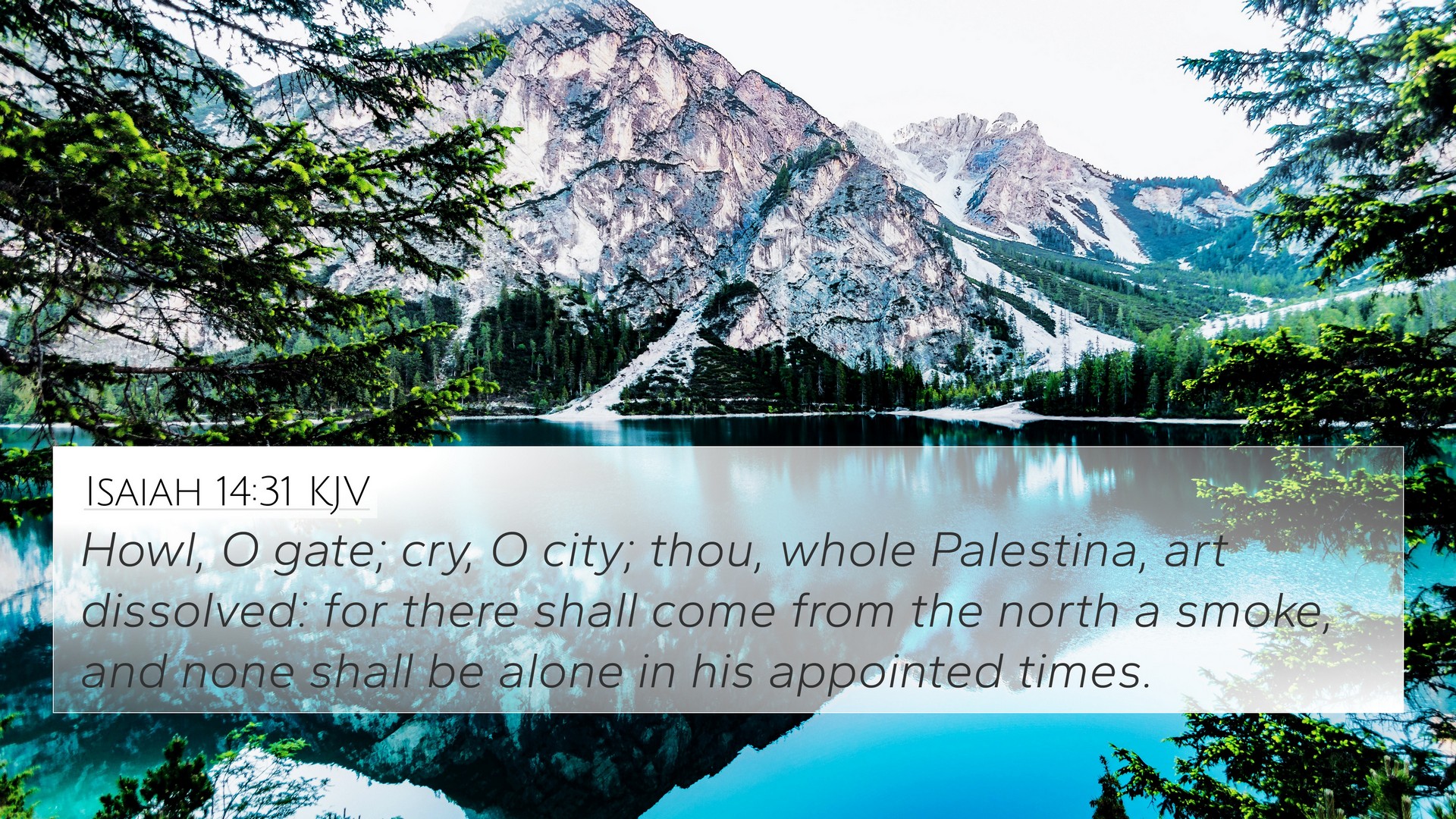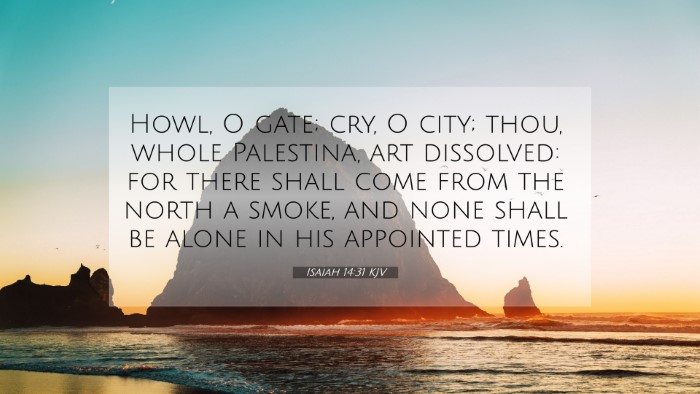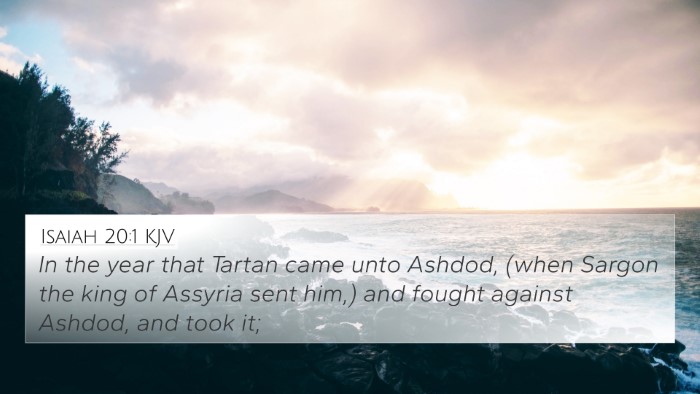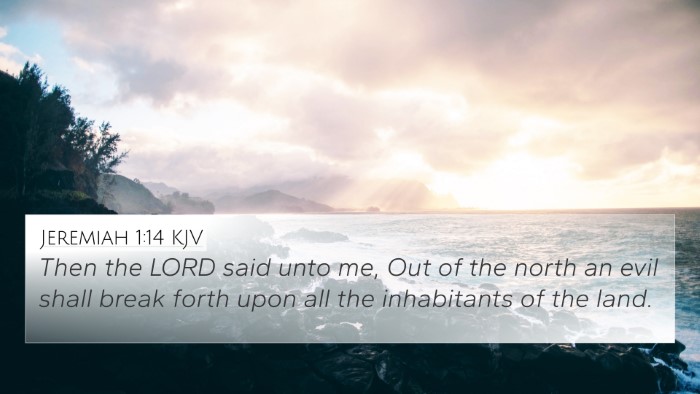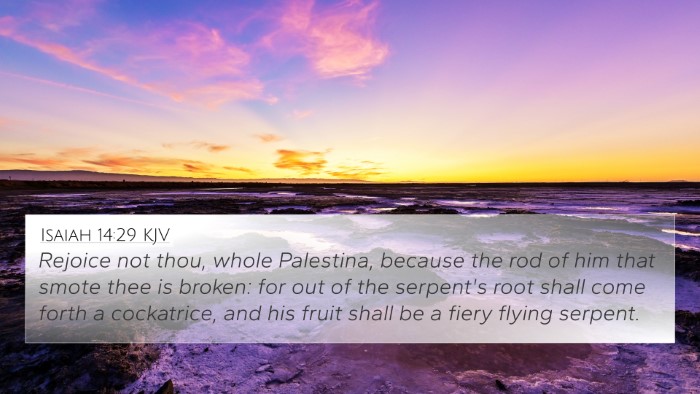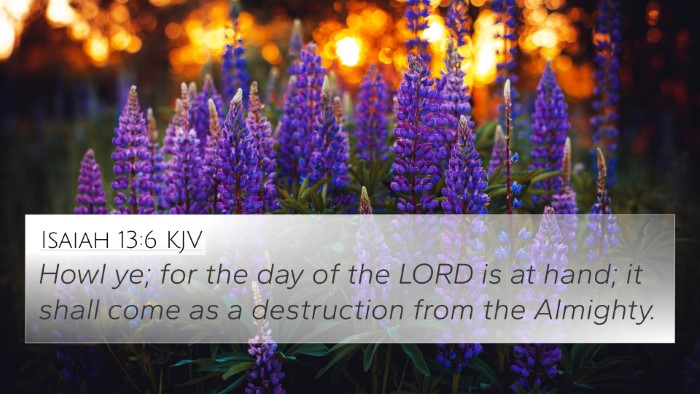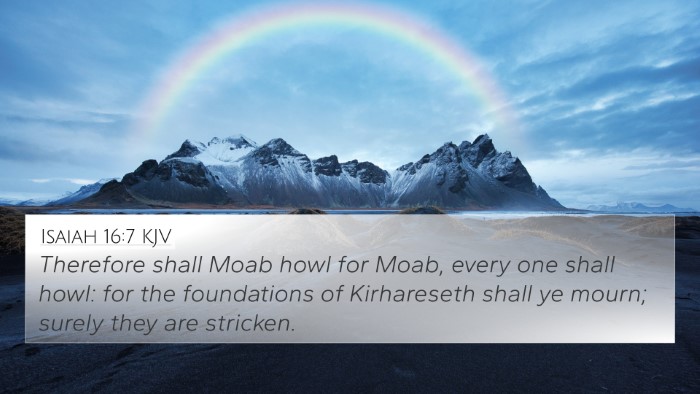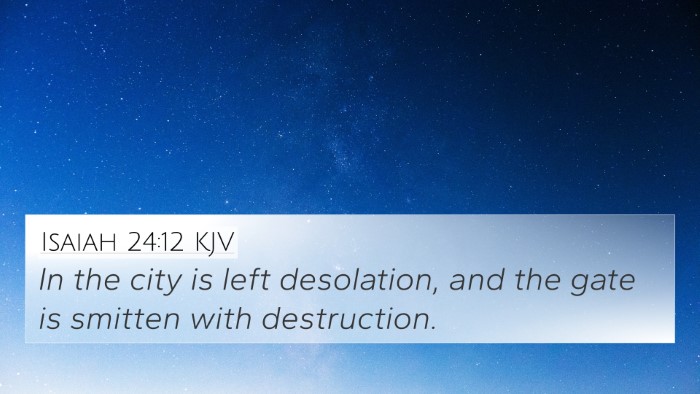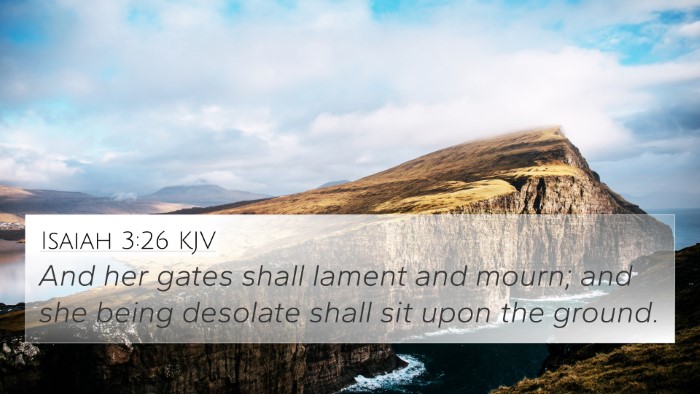Understanding Isaiah 14:31
The verse Isaiah 14:31 states:
"Wail, O gate; cry, O city; thou whole Palestina art dissolved: for there shall come from the north a smoke, and none shall be alone in his appointed times."
Summarized Meaning from Public Domain Commentaries
This verse comes from a prophetic discourse addressing the pride and impending judgment of the nations, specifically focusing on the region of Philistia (Palestina). The call to "wail" and "cry" underlines the seriousness of the impending devastation from the north, symbolizing both the threats that loom and the desolation that will follow.
Insights from Commentaries
-
Matthew Henry:
Henry emphasizes the dramatic nature of the prophecy, calling attention to the emotional response of the cities as they face impending doom. His analysis highlights that the "gate" and "city" symbolize the strongholds of the Philistines facing destruction, reinforcing the idea of inevitable divine judgment.
-
Albert Barnes:
Barnes provides context to the geographical and historical significance of Philistia and interprets the coming "smoke" from the north as a metaphor for the destruction brought by invading forces. He notes that the phrase points to the creeping darkness of judgment, which is both terrifying and unavoidable.
-
Adam Clarke:
Clarke interprets the "dissolved" state of Palestina to reflect its complete desolation due to neglecting the true God. He underscores that the verse serves as a stark warning about the consequences of turning away from divine guidance and worship.
Bible Verse Cross-References
This verse aligns with numerous other scripture passages regarding warnings of judgment and the fate of nations that oppose God. Below are relevant cross-references:
- Isaiah 13:2-3: Discusses the calling of nations to battle against Babylon, paralleling the call to lament in Isaiah 14:31.
- Isaiah 24:1: Speaks of the Lord laying waste to the earth, echoing themes of desolation.
- Jeremiah 47:1-5: Prophecies concerning the Philistines emphasize their ultimate fate at the hands of God’s judgment.
- Ezekiel 25:15-16: Contains a lament against Philistia and their destruction, showing causation and correlation with Isaiah's warning.
- Zephaniah 2:5: Stresses the imminent punishment intended for the Philistines, affirming Isaiah's prophecy.
- Joel 3:4: Discusses God's judgment against nations, relating themes in Isaiah about the fates of those who turn against Him.
- Amos 1:8: The destruction of Gaza underlines the fulfillment of Isaiah's prophetic warning.
Thematic Connections in Scripture
Isaiah 14:31 not only stands alone but connects deeply with themes throughout the Bible regarding divine judgment, the consequences of national pride, and God’s sovereignty. These connections deepen our understanding of various Biblical texts through the lens of cross-referencing:
Further Comparisons and Studies
By engaging in a comparative Bible verse analysis, we can uncover how different scriptures interrelate and echo similar themes:
- Examine the interactions and prophecies regarding the Philistines throughout the entirety of scripture.
- Consider how Old Testament judgments relate to prophetic fulfillments in the New Testament, underlining God’s unchanging nature.
- Analyze parallels between prophetic literature and the teachings of Jesus, as He often referenced the prophetic warnings found within these texts.
- Investigate the consequences faced by nations throughout Biblical history to understand the relational dynamics with God more deeply.
Tools for Bible Cross-Referencing
Utilizing a variety of Bible reference resources can enhance one’s understanding of the connections between scriptures. Here are some effective tools:
- Bible concordances help locate key themes and verses related to each other.
- Bible cross-reference guides offer frameworks for studying interrelated themes and topics.
- Online cross-referencing Bible study aids can illuminate complex theological concepts.
Conclusion
Isaiah 14:31 serves as a profound reminder of the consequences of turning away from divine ordinances and the inevitable judgment that follows. By studying this passage alongside its cross-referenced scriptures, we glean a deeper, richer understanding of God's word. Engaging in comprehensive Bible cross-reference materials ensures a thorough exploration of how these verses resonate with each other, enhancing both personal faith and scholarly study.
